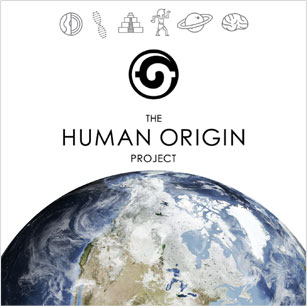The field of neuroscience has increased our understanding of the human brain markedly in the last years.
Human consciousness, while not completely understood is influenced by the function of the structures of the brain.
In this article, we’ll take an evidence-based look at meditation and higher consciousness.
What is higher consciousness?
A difficult term to describe. Higher consciousness could be defined as the part of the human being that is capable of transcending animal instincts. For example, the idea of morality, creativity, and philosophical thinking may be traits of higher consciousness.
Practices like Buddhism, and yoga are practices with the goal to allow transcendence into higher consciousness. The aim is to release from the lower functioning of the brain and access the higher mind, or higher consciousness.
The human brain and consciousness
Your brain may be regarded as a consciousness machine. Current knowledge into the evolution of consciousness shows that while not wholly unique, the human brain is the most advanced of those on earth regarding consciousness.
It is distinguished by a large neocortex, particularly the frontal cortex. Here brain function such as human emotions and other higher level thinking are processed.
Can meditation improve brain function?
Research is revealing the benefits of healing meditations for example show remarkable benefits.
In particular, the application for anxiety and depression is now backed by published research.
So, via these mechanisms can we also use meditation as a functional tool to enhance our brain?
Can meditation increase intelligence?
The problem with the function of the brain is it’s difficult to quantify. There are ways to measure someone operating at higher consciousness.
How would you define intelligence? Is higher consciousness merely a more intelligent person?
Overall we can see that higher performing people could be classed as operating at ‘higher consciousness.’
Many CEO’s, for example, talk about meditation as a practice to increase their work performance.
While higher consciousness is hard to define alone, research does measure the attributes it’s associated with.
Here are four ways meditation encourages higher consciousness.
1) Meditation promotes emotional health.
Higher consciousness is associated with a feeling of self-worth and inner peace. A positive outlook on life is usually attributed to better outcomes and a sense of happiness.
Mental performance is affected by chronic stress. Inflammatory chemicals released called cytokines can affect mood leading to depression.
- Studies suggest meditation may reduce depression by decreasing these inflammatory chemicals.
- Other research showed measurable changes in activity in areas related to positive thinking and optimism.
- Two studies of mindfulness meditation measured decreased depression in over 4,600 adults.
- One study followed 18 volunteers as they practiced meditation over three years. The study found that participants experienced long-term decreases in depression.
2) Meditation enhances self-awareness
A strong sense of self, understand strengths, and weakness are vital for development.
Benefits can apply to many aspects of life including work and performance.
- A study of 21 women fighting breast cancer found that when they took part in a tai chi program, their self-esteem improved more than it did than in those who received social support sessions.
- Another study, 40 senior men and women who took a mindfulness meditation program experienced reduced feelings of loneliness.
- Self-inquiry meditation explicitly aims to help you develop a greater understanding of yourself and how you relate to those around you. It could help cultivate more creative problem-solving skill.
- It can help recognize thoughts that may be harmful or self-defeating.
3) Meditation lengthens attention span and memory.
It helps to increase the strength and endurance of your attention.
- One study found an 8-week program improved participants’ ability to reorient and maintain their attention.
- A similar study showed that human resource workers who regularly practiced mindfulness meditation stayed focused on a task for longer and improved memory.
- A review concluded that meditation may even reverse patterns in the brain that contribute to mind-wandering, worrying and poor attention.
- A four-day study showed increased attention span can happen just a short period.
Focused-attention meditation is like weight lifting for your attention span and memory.
4) Meditation can generate kindness.
Altruism and selflessness are a characteristic associated with higher consciousness.
Some types of meditation may particularly increase positive feelings and actions toward yourself and others. Metta, a type of meditation also known as loving-kindness meditation, begins with developing kind thoughts and feelings toward yourself.
A meta-analysis of this form of meditation has demonstrated its ability to increase peoples’ compassion toward themselves and others.
One study of 100 adults randomly assigned to a program that included loving-kindness meditation found that these benefits were dose-dependent.
Another group of studies showed the positive feelings people develop through Metta meditation can improve social anxiety, reduce marriage conflict and help anger management.
These benefits also appear to accumulate over time with the practice of loving-kindness meditation.
Conclusion:
Higher consciousness is hard to define. We can, however, describe and explore the characteristics of people with higher consciousness.
Research demonstrates that meditation practice can help people achieve higher consciousness.
Benefits may extend to work and professional life, self-awareness, and general happiness in private and family life.
Now we want to hear from you. Are your meditation practices helping achieve better brain function or higher consciosness?
Leave your thoughts and experiences in the comment section below.
Further reading:
- https://www.ncbi.nlm.nih.gov/pubmed/24395196
- https://www.ncbi.nlm.nih.gov/pubmed/25591492
- https://www.sciencedirect.com/science/article/pii/016383439500025M
- https://link.springer.com/article/10.3758/CABN.7.2.109#page-1


























